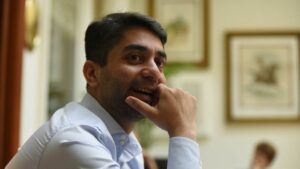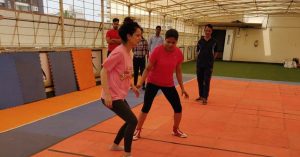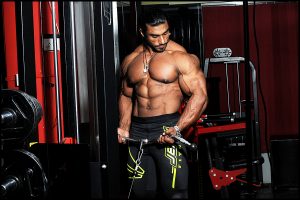India’s quest for international dominance now requires not only world-class infrastructure but also a fundamental shift in attitude, according to Olympic gold medalist Abhinav Bindra. He emphasizes the essential role of sports activity technology in this change and urges coaches to incorporate it into their training techniques.
Also Read: Vaibhav Gehlot Resigns as President of Rajasthan Cricket Association Amid Controversy
Abhinav Bindra, India’s first individual Olympic champion, believes coaches hold the key to athletic development. Speaking at the Bharat Sports Science Conclave, he made sure that coaches incorporate sports science into their teaching methodologies and adapt to a statistics-driven age. He emphasized: “To become a powerhouse, we want to incorporate sports science at all levels, from the grassroots to the elite.”
While modern devices are essential, Bindra argues that adopting a medical approach is what will clearly move India towards wearable excellence. Emphasizing the importance of young people starting out, he states: “It is vital to inculcate a culture of accurate analysis and completely proven educational methods at grassroots level.”
The conclave, prepared through TransStadia University and the National Center for Sports Science and Research (NCSSR), aimed to promote excessive research in sports activity training and overall performance enhancement. It added collective professionals who often work behind the scenes to shape destiny champions.
Echoing Bindra’s sentiment, Sports Minister Anurag Singh Thakur cited the key role of sports activity technology in improving athletes. He explained, “Sports science helps athletes recognize their strengths, strengthen them, and challenge themselves to reap their dreams.” He likewise stated the government’s commitment to the method by ensuring the presence of sports technology know-how departments at National Centers of Excellence across the nation.
It was a pleasure to be part of the inaugural Bharat Sports Science Conclave 2024. I extend my gratitude to Shri @UditSheth ji, Founder and Chairman of TransStadia University and President of Yogasana Bharat, as well as the entire team at @SETransStadia for organizing this event… pic.twitter.com/qSbHfVh7u2
— Anurag Thakur (@ianuragthakur) February 28, 2024
The conclave itself, according to Bindra, “testifies to our nation’s pioneering spirit and questioning approach to sports technology.” This gathering points to a collective effort to convey the past in reality, offering excellent facilities and direction towards cultivating a systematic environment that nurtures champions.
By incorporating informational, medical methods into talent training and development, India can bridge the gap between capability and sustained success. This adventure requires not only infrastructure funding, but also a cultural shift closer to recognizing the importance of sports science at every step of the athlete’s journey, from the grassroots to the pinnacle of global competition.






